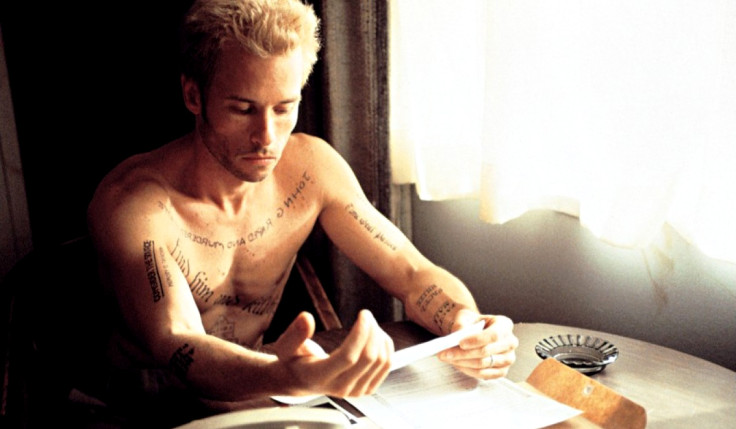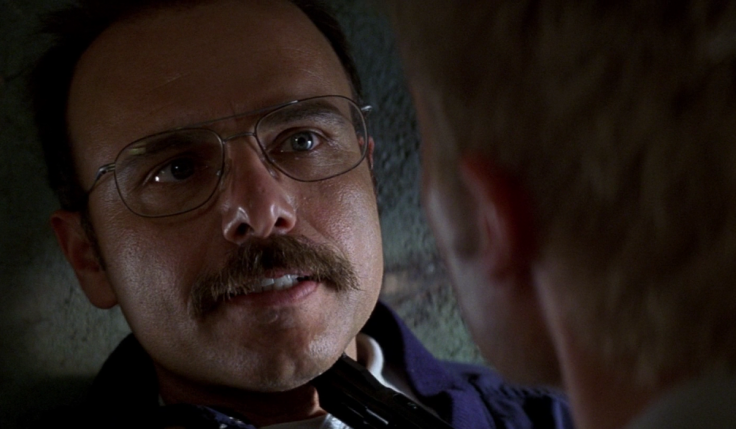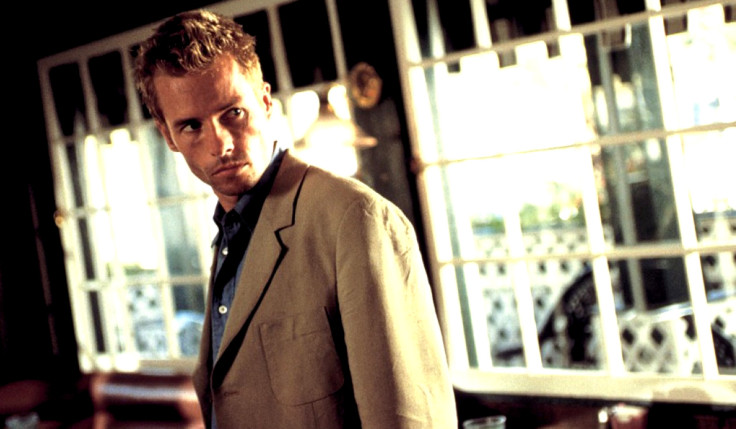Memento: The Films Of Christopher Nolan

In our continuing series, we take a look at the work of British director Christopher Nolan in the lead up to the November release of his ninth film, Interstellar. This week we look at Memento, the film that thrust Nolan into the spotlight.
A neo-noir revenge thriller, Memento's place in the Nolan back-catalogue is as his first true classic. Daring and compelling, Nolan's second big screen picture is arguably his best, arguably his most interesting, and absolutely his most bold.
It began with Nolan and his brother Jonathan taking a road trip from Chicago to Los Angeles in 1996. Along the way the younger Nolan pitched a story to Jonathan about a man unable to forge new memories who is consumed by a thirst for revenge against his wife's killer.
That story, tinkered with by both brothers, became Nolan's screenplay Memento and Jonathan's short story Memento Mori (which you can read here). Nolan's then-girlfriend Emma Thomas soon showed the script to Newmarket Films executive Aaron Ryder who described it as "perhaps the most innovative script I had ever seen", as described in James Mottram's book The Making of Memento.
Newmarket soon set Nolan to work on the film, and the rest would become movie history as one of the age's defining directors prepared to take centre stage.
Memento's key characteristic is of course its complex narrative structure, which is set up with the opening shot: a Polaroid picture of a dead man, fading from view as we witness the murder unfold in reverse. Apart from establishing the front-to-back narrative it is also a simply incredible start. How many films start with the so-called hero of the film murdering someone for reasons the viewer does not know?

From here each scene takes place in reverse order as we work back toward the events which resulted in this grisly shooting and delve deeper into the recesses of Leonard's (Guy Pearce) fractured psyche.
Running alongside these scenes is a series of black-and-white flashbacks which eventually merge with the main plot line prior to the final sequence.
It works so expertly because each and every scene ends with a question the audience knows will be answered in due course: how did Leonard get here? Why is this man chasing him? How did Natalie (Carrie-Anne Moss) get that cut on her face?
This is what makes Memento Nolan's most interesting moment-to-moment film; even after a third or fourth viewing it remains utterly compelling because its set-up ensures only the most ardent fan, concentrating completely, will fully understand its weaving narrative.
Like so many of Nolan's films, Memento begs to be discussed and the reason that works is because, at least compared to other great cultural mysteries like TV series Lost, it is mysterious from the ground up rather than just a series of questions of which only a handful will be answered.
This is also evident in other Nolan features Inception, The Prestige and to a slightly lesser extent The Dark Knight Rises.

Memento is also an important part of Nolan's career because it marked the first time he worked with cinematographer Wally Pfister, who would collaborate with Nolan on his next six features before turning his eye to the director's chair himself.
Pfister had only worked on one film as director of photography before Memento, which is why it isn't the most visually interesting film of his career. There are some standout moments though: the aforementioned opening shot is one, there's a beautiful split-second shot of Leonard as Sammy Jankis and another later when the black and white and colour plotlines merge in a pivotal scene.
Hints and flashes of future potential are everywhere in Memento behind and in front of the camera. This is absolutely one of, if not the best Nolan film, but the potential he shows is for larger scale, grander filmmaking of the blockbuster size he would become known for.
Look at Memento as a calling card for the Batman franchise and a number of Nolanisms appear once more. There are issues of identity (Leonard as Sammy and who John G is), ideas of obsession, vengeance and suits as a façade (the monochrome timeline switches to colour when Leonard dons the dead man's suit and becomes a killer), then of course there's Leonard's mental state.
Before Nolan would take on Batman he would first make his debut studio picture, a police procedural nowhere near as celebrated as the rest of his work but a film which marked an important step in his career.
Next week – Insomnia.
© Copyright IBTimes 2025. All rights reserved.






















